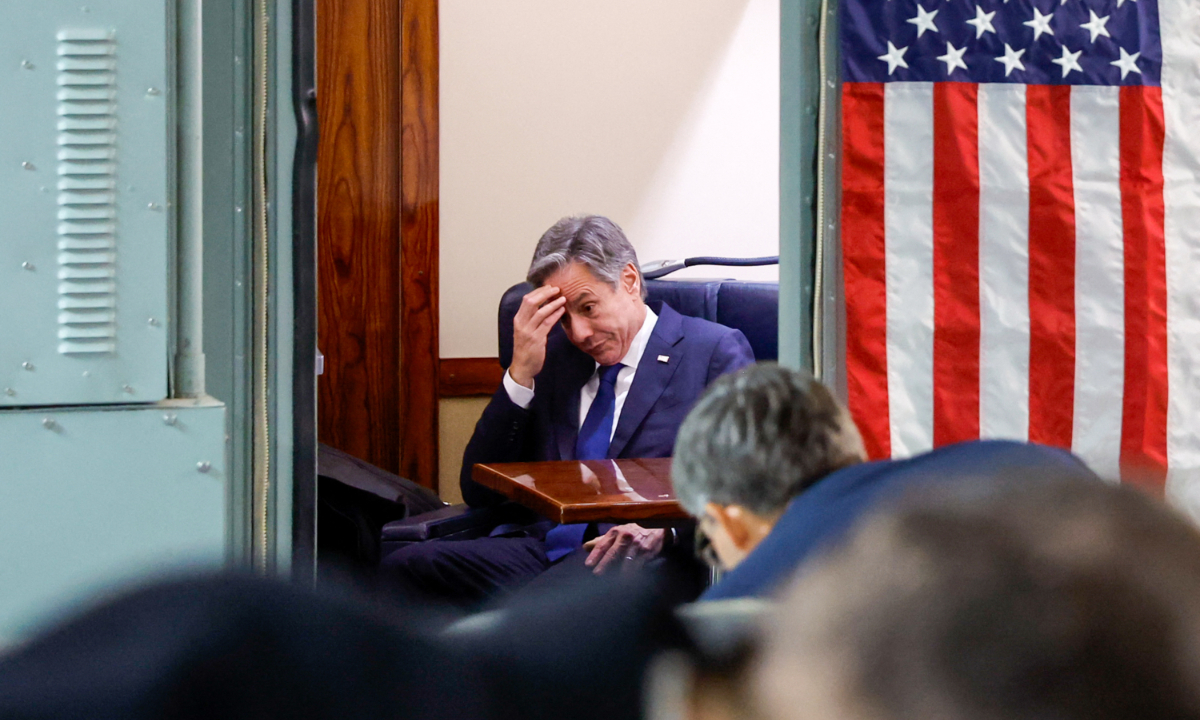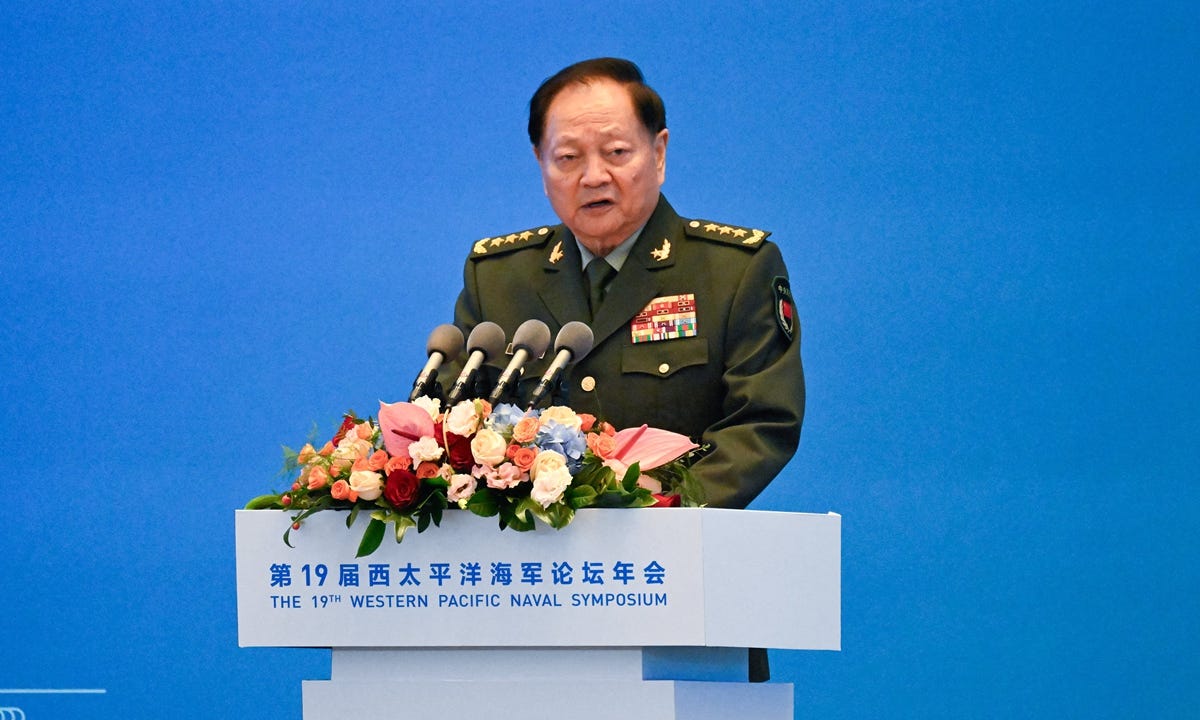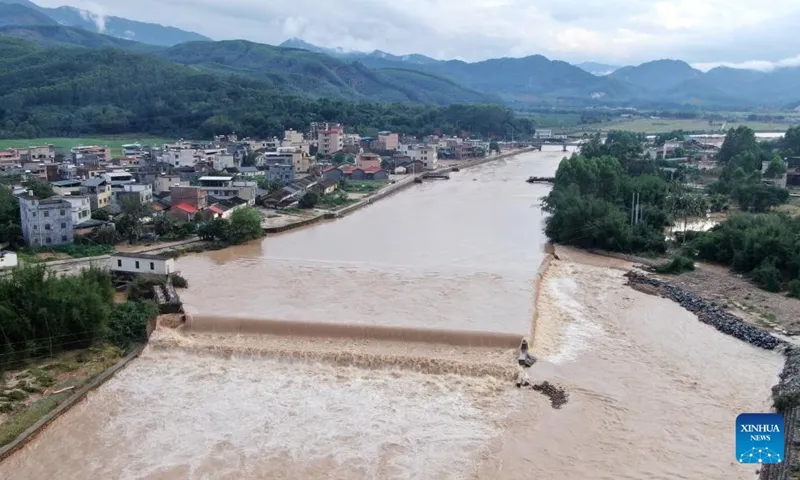US ratchets up pressure on China ahead of Blinken visit in typical hegemonic approach
US ratchets up pressure on China ahead of Blinken visit in typical hegemonic approach

US Secretary of State Antony Blinken will reportedly warn that Washington will take punitive steps against Beijing over its “weapon-related exports to Russia” during his visit scheduled this week. Observers said the rhetoric, in addition to the recent hype of “overcapacity” regarding exports of Chinese new energy product and numerous restrictions slapped on Chinese high-tech industries, shows that the US has been ratcheting up pressure on China in a wider range of military, economic and trade fields.
The recent bizarre narratives on China are all essentially disguises to justify the US weaponizing economic issues, in order to shift the blame away from the Biden administration’s policy failures, analysts pointed out. While those moves are somewhat typical US tactics of aggression first and backing off later, analysts said the amassing of more Washington-instigated “negative factors” will create more discords in bilateral relations, which remain “extremely fragile” despite certain progress toward stabilization.
Blinken does not plan to reveal what measures the US will take during his visit to China, which is scheduled from April 24 to 26, but according to a Financial Times report, several people familiar with the situation said it is considering sanctions on Chinese financial institutions and other entities.
Western Pacific Naval Symposium opens in Qingdao, looks to bridge differences

Senior naval officers from around the world on Monday witnessed the opening of a naval symposium in China which is aimed at bridging differences and seeking global governance on maritime issues, while a senior Chinese defense official reaffirmed China’s commitment to resolving disputes with directly involved countries through friendly consultation, but also vowed “countermeasures” against unwarranted provocations.
The 19th Western Pacific Naval Symposium (WPNS) opened on Monday in the port city of Qingdao in East China’s Shandong Province. Zhang Youxia, vice chairman of the Central Military Commission, attended the event and delivered an address.
Zhang said that China’s armed forces have actively participated in international cooperation of maritime security and provided maritime public security goods, adding that China will play a more positive and open role in international military cooperation.
“We should resolutely abandon the Cold War mentality, join hands to create peace and stability, bridge differences through dialogue and consultation, jointly discuss and establish rules for governance, and push maritime security governance to a new level with practical results.” He said.
Flooded Guangdong, Guangxi respond rapidly to continuing heavy rainfall

Flood-affected areas in South China on Monday called for all-out efforts to reduce the impact brought about by the heavy rainfall during recent days including transferring residents, strengthening monitoring frequency and issuing early warnings to safeguard people’s lives and property, and preventing secondary disasters such as landslides caused by heavy rainfall.
China’s National Meteorological Center on Monday issued a yellow alert for rainstorms and a blue alert for severe convection weather as heavy downpours as well as thunderstorms, gales and hail are anticipated to lash parts of the country, including parts of South China’s Guangdong Province and Guangxi Zhuang Autonomous Region, from Monday to Tuesday. China has a four-tier weather warning system, with red being the most severe, followed by orange, yellow and blue.
China’s State Flood Control and Drought Relief Headquarters and the Ministry of Emergency Management on Monday continued to coordinate and deploy flood control and disaster relief work in key areas in South China and other regions, to cope with the new round of heavy rainfall.
